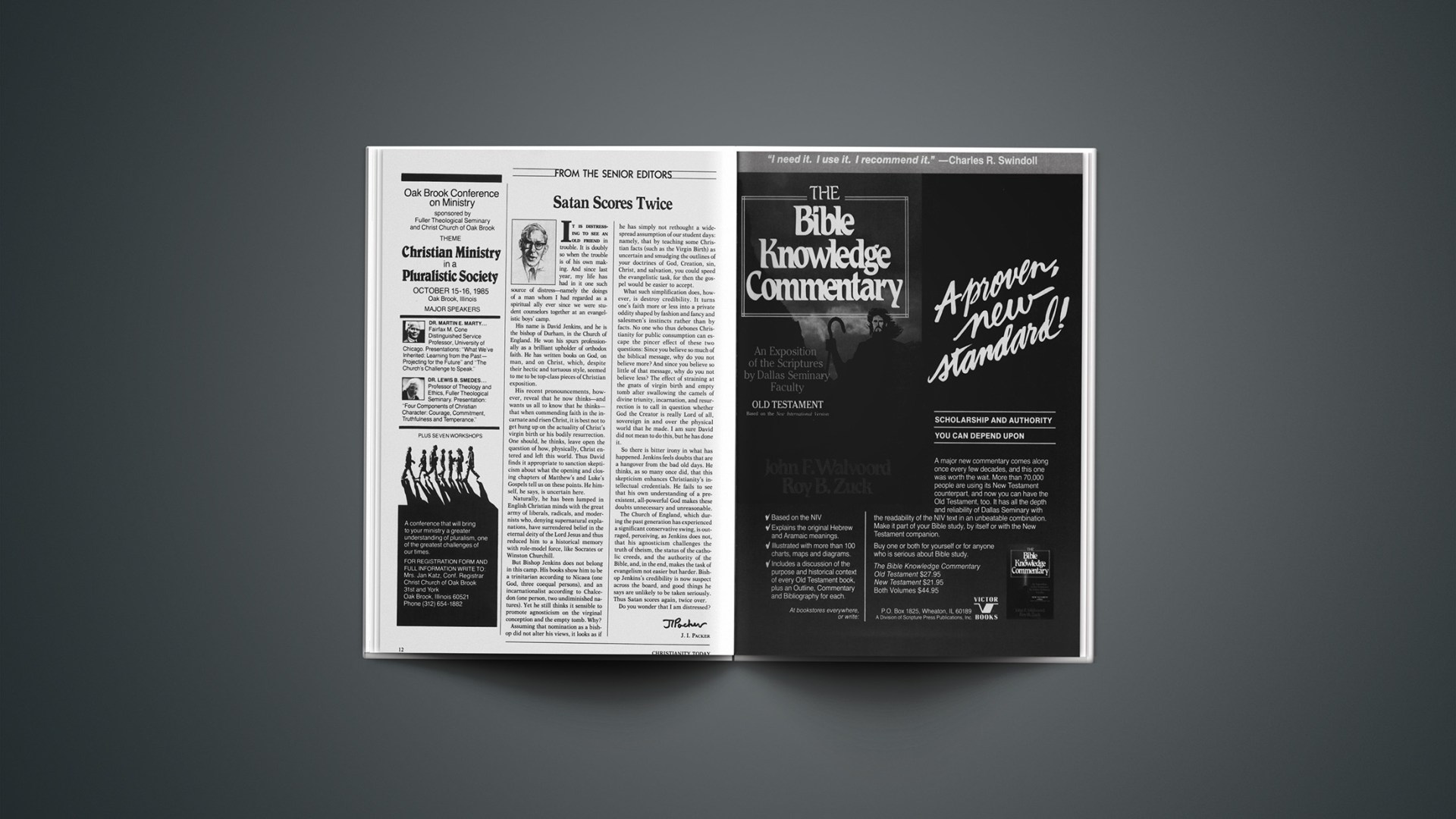It is distressing to see an old friend in trouble. It is doubly so when the trouble is of his own making. And since last year, my life has had in it one such source of distress—namely the doings of a man whom I had regarded as a spiritual ally ever since we were student counselors together at an evangelistic boys’ camp.
His name is David Jenkins, and he is the bishop of Durham, in the Church of England. He won his spurs professionally as a brilliant upholder of orthodox faith. He has written books on God, on man, and on Christ, which, despite their hectic and tortuous style, seemed to me to be top-class pieces of Christian exposition.
His recent pronouncements, however, reveal that he now thinks—and wants us all to know that he thinks—that when commending faith in the incarnate and risen Christ, it is best not to get hung up on the actuality of Christ’s virgin birth or his bodily resurrection. One should, he thinks, leave open the question of how, physically, Christ entered and left this world. Thus David finds it appropriate to sanction skepticism about what the opening and closing chapters of Matthew’s and Luke’s Gospels tell us on these points. He himself, he says, is uncertain here.
Naturally, he has been lumped in English Christian minds with the great army of liberals, radicals, and modernists who, denying supernatural explanations, have surrendered belief in the eternal deity of the Lord Jesus and thus reduced him to a historical memory with role-model force, like Socrates or Winston Churchill.
But Bishop Jenkins does not belong in this camp. His books show him to be a trinitarian according to Nicaea (one God, three coequal persons), and an incarnationalist according to Chalcedon (one person, two undiminished natures). Yet he still thinks it sensible to promote agnosticism on the virginal conception and the empty tomb. Why?
Assuming that nomination as a bishop did not alter his views, it looks as if he has simply not rethought a widespread assumption of our student days: namely, that by teaching some Christian facts (such as the Virgin Birth) as uncertain and smudging the outlines of your doctrines of God, Creation, sin, Christ, and salvation, you could speed the evangelistic task, for then the gospel would be easier to accept.
What such simplification does, however, is destroy credibility. It turns one’s faith more or less into a private oddity shaped by fashion and fancy and salesmen’s instincts rather than by facts. No one who thus debones Christianity for public consumption can escape the pincer effect of these two questions: Since you believe so much of the biblical message, why do you not believe more? And since you believe so little of that message, why do you not believe less? The effect of straining at the gnats of virgin birth and empty tomb after swallowing the camels of divine triunity, incarnation, and resurrection is to call in question whether God the Creator is really Lord of all, sovereign in and over the physical world that he made. I am sure David did not mean to do this, but he has done it.
So there is bitter irony in what has happened. Jenkins feels doubts that are a hangover from the bad old days. He thinks, as so many once did, that this skepticism enhances Christianity’s intellectual credentials. He fails to see that his own understanding of a pre-existent, all-powerful God makes these doubts unnecessary and unreasonable.
The Church of England, which during the past generation has experienced a significant conservative swing, is outraged, perceiving, as Jenkins does not, that his agnosticism challenges the truth of theism, the status of the catholic creeds, and the authority of the Bible, and, in the end, makes the task of evangelism not easier but harder. Bishop Jenkins’s credibility is now suspect across the board, and good things he says are unlikely to be taken seriously. Thus Satan scores again, twice over.
Do you wonder that I am distressed?










